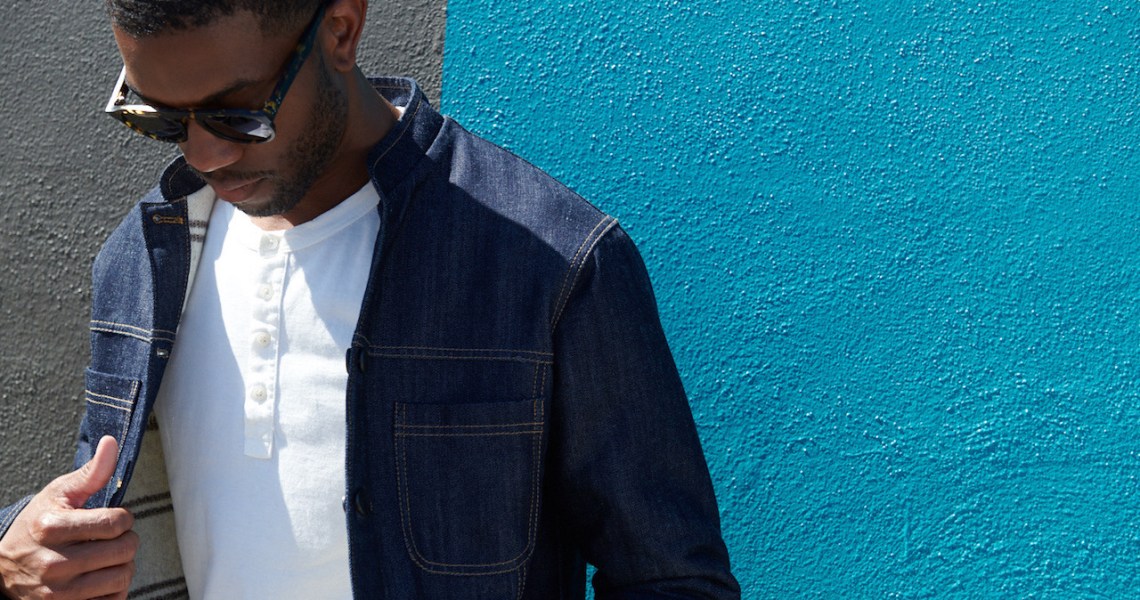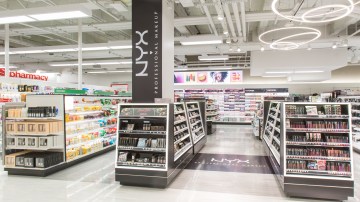Women’s athleisure brand Alala is made up of a small team of 11 people based in New York City. The company’s second-biggest market is Los Angeles. Alala founder Denise Lee knew her brand needed a physical presence on the West Coast, so she brought in outside help to establish it.
Alala will be the anchor brand for a new retail space created by b8ta, a company specializing in creating multi-brand retail spaces, particularly DTC brands that do not have much of a retail presence to begin with. Forum, as the new space is called, will be focused on fashion and beauty when it opens in Los Angeles in November.
“LA is a big market for us, and it has even bigger potential,” said Lee. “But it’s difficult since we’re such a small team. We’ve been holding out on physical retail because of the time and cost it would take to fly to LA constantly to hire, train and open the store. It’s something we’ve wanted to do but just haven’t been able to.”
Alongside Alala, which recently expanded into more inclusive sizing, Forum will host a number of other rotating brands including T-shirt brand Culk, jeans brand Unemployed Denim and shoe brand Moral Code. B8ta only takes a flat monthly fee, and the brands to take the full percentage of their profits. In this way, Philip Raub, c0-founder and president of b8ta, is hoping that Forum will become a go-to place for brands that want to experiment with physical retail but don’t have the capital or resources to have their own physical space. The frequent rotation of brands through the space will balance out with the relatively low fee that b8ta takes.
B8ta is primarily known for launching retail spaces for consumer electronics, but has recently expanded into fashion by partnering with brands and retailers like Thinx and Macy’s. Forum represents the largest play for fashion clients the company has undertaken. Raub sees fashion ias a fertile market for b8ta, considering the slew of fashion brands looking for help on the physical retail side. And, he said, considering b8ta’s tech focus, it’s an industry to which the company can offer unique strengths.
“There are a lot of options for brands looking to find launch partners,” Raub said. “A lot of fashion brands are branching into physical retail but don’t always have the operations to run it effectively. We’ve spent the last four years perfecting our retail model in the electronics world, and we’ve worked with over 1,000 brands. Across that time, we learned a lot about helping brands launch retail, and fashion and apparel is the logical next step.”
The market for retail-as-a-service is expanding. B8ta is one of a number of companies that have made it their model to provide streamlined ways into physical retail for brands without the capacity to pour resources into expensive rental leases, staffing and all the other processes that come with setting up a store. With Forum, b8ta will be providing fashion brands an inexpensive space relative to a standard retail lease, help with staffing and other elements that would be difficult for a brand to handle on its own.
Similar companies include Leap, which runs entire stores for a variety of brands like Koio, and Showfields which gives multiple brands spaces in one large location, letting them test the waters of physical retail before making any significant plunges. There’s also Re:Store in San Francisco, Fourpost, Neighborhood Goods and Bulletin.
Each of these companies has its unique advantages. For b8ta, Raub said the company’s tech and electronics background played a part in some of the more modern elements of Forum. B8ta is outfitting every fitting room of Forum with RFID technology, which will allow brands to know what products customers are bringing into the fitting room. They can then show customers suggestions on an accompanying video screen for how to style those products and encourage sharing of the looks on social media. These RFID tags will also provide data to brands like Alala on what products are being tried on compared with the ones that are purchased.
“We get approached by opportunities like this a lot,” Lee said. “But with Forum, they’re giving us a lot of tools to help us grow our audience, and key insights that convinced us they were just as invested as we are in our brand. Getting immediate feedback from sales associates is something you can’t get from a traditional wholesaler.”
Like many online-focused brands that are exploring retail right now, Alala sees a physical store as about more than just a revenue driver. It’s also about building the brand’s audience.
“Obviously a return on investment is a key metric, but I do think that physical retail can help us grow our social audience and our email list in L.A.,” Lee said. “That’s super important. And on the qualitative level, the physical store can help us learn who our L.A. customer is.”




